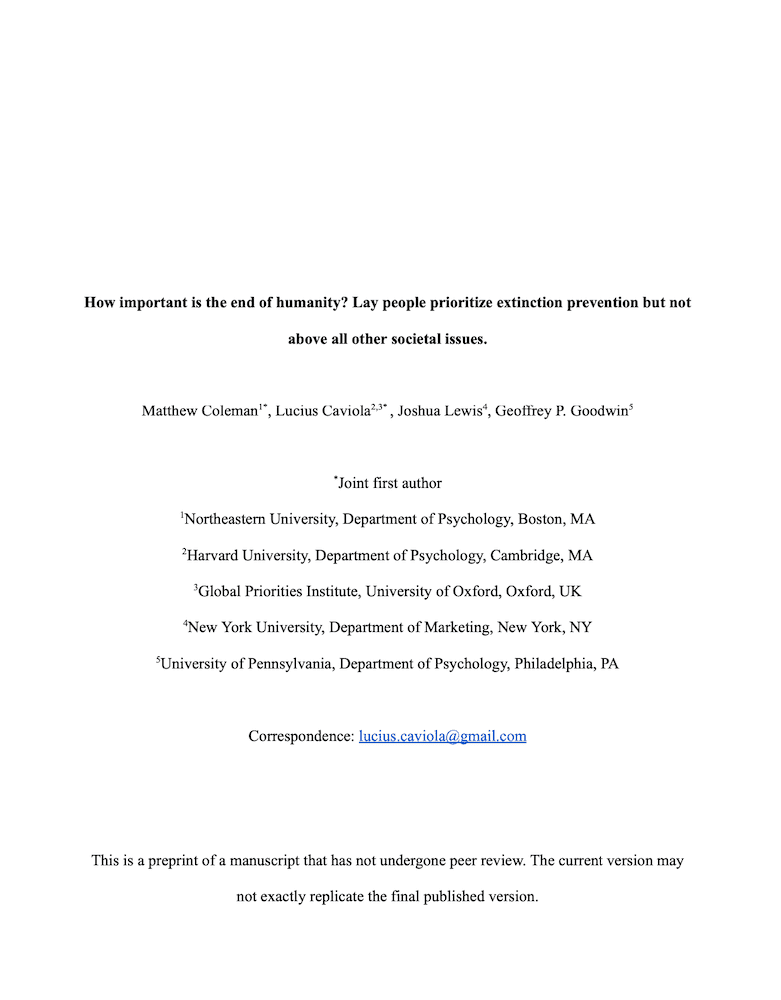Beliefs about the end of humanity: How bad, likely, and important is human extinction?
Matthew Coleman (Northeastern University), Lucius Caviola (Global Priorities Institute, University of Oxford), Joshua Lewis (New York University) and Geoffrey Goodwin (University of Pennsylvania)
GPI Working Paper No. 1-2024
Human extinction would mean the end of humanity’s achievements, culture, and future potential. According to some ethical views, this would be a terrible outcome. But how do people think about human extinction? And how much do they prioritize preventing extinction over other societal issues? Across five empirical studies (N = 2,147; U.S. and China) we find that people consider extinction prevention a societal priority and deserving of greatly increased societal resources. However, despite estimating the likelihood of human extinction to be 5% this century (U.S. median), people believe that the chances would need to be around 30% for it to be the very highest priority. In line with this, people consider extinction prevention to be only one among several important societal issues. People’s judgments about the relative importance of extinction prevention appear relatively fixed and hard to change by reason-based interventions.
Other working papers
The evidentialist’s wager – William MacAskill, Aron Vallinder (Global Priorities Institute, Oxford University) Caspar Österheld (Duke University), Carl Shulman (Future of Humanity Institute, Oxford University), Johannes Treutlein (TU Berlin)
Suppose that an altruistic and morally motivated agent who is uncertain between evidential decision theory (EDT) and causal decision theory (CDT) finds herself in a situation in which the two theories give conflicting verdicts. We argue that even if she has significantly higher credence in CDT, she should nevertheless act …
Longtermist political philosophy: An agenda for future research – Jacob Barrett (Global Priorities Institute, University of Oxford) and Andreas T. Schmidt (University of Groningen)
We set out longtermist political philosophy as a research field. First, we argue that the standard case for longtermism is more robust when applied to institutions than to individual action. This motivates “institutional longtermism”: when building or shaping institutions, positively affecting the value of the long-term future is a key moral priority. Second, we briefly distinguish approaches to pursuing longtermist institutional reform along two dimensions: such approaches may be more targeted or more broad, and more urgent or more patient.
- « Previous
- 1
- …
- 35
- 36
- 37

